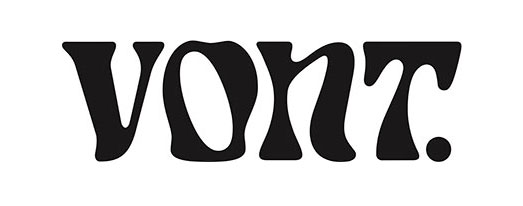Our CEO Lee Bryan reveals the vast and varied costs of failing to meet compliance obligations.
In recent years, the vape industry has experienced exponential growth, transforming from an unregulated niche market into a mainstream consumer product. This rapid expansion, however, has brought increased scrutiny from regulatory bodies worldwide. For vape companies, staying compliant with these regulations is not just a legal obligation but a crucial factor for survival and success in the market. Failing to adhere to these ever-evolving rules can result in significant costs, both financially and reputationally. Here’s my perspective on why vape companies must prioritise regulatory compliance.
Financial Penalties
One of the most immediate and impactful costs of non-compliance is steep financial penalties. Regulatory and enforcement bodies can impose hefty fines on companies that violate vape regulations. Such fines can range from thousands to millions of dollars, depending on the severity and frequency of the violations. For many small to medium-sized vape businesses, these penalties can be crippling, leading to severe financial disruption or even bankruptcy.
In practice – FDA fines:
In 2019, the US Food and Drug Administration (FDA) issued a warning letter to a major e-cigarette manufacturer, imposing fines and demanding corrective actions for marketing products without proper authorisation. The company faced potential fines of up to $1 million per violation per day if it failed to comply. Such serious financial repercussions highlight the critical importance of adhering to regulatory requirements.
Legal Costs
Beyond financial penalties, companies may incur substantial legal costs when defending against regulatory enforcement action. Legal battles with regulatory authorities are often protracted and require the expertise of specialised lawyers, which can be incredibly expensive. These legal fees, combined with the cost of potential settlements, will exhaust a company’s resources, diverting funds away from other critical business operations.
Product Seizures and Recalls
Non-compliance can also lead to product seizures and mandatory recalls. Regulatory and enforcement agencies have the authority to remove non-compliant products from the market, resulting in significant revenue losses. Additionally, recalls can be logistically challenging and expensive for businesses, involving not only the direct costs of retrieving and replacing products, but also exposure to the indirect costs of lost sales and damaged relationships with retailers and consumers.
In practice – PMTA enforcement:
A vape company that fails to meet the FDA’s Premarket Tobacco Product Application (PMTA) requirements may be forced to pull its products from shelves. The consequential loss of market presence and sales can be devastating, particularly for companies that rely on a few key products.
Reputational Damage
In today’s digital age, news about regulatory violations spreads like wildfire. Non-compliance can severely damage a company’s reputation, leading to loss of consumer trust and loyalty. Negative publicity can be long-lasting, impacting a company’s brand image and market position even after the compliance issues are resolved. Rebuilding a tarnished reputation is a slow and expensive process, often requiring extensive public relations efforts and high-profile marketing campaigns. In extreme cases, such brand reputational damage may be irreversible.
In practice – brand reputation:
In 2018, a popular e-cigarette brand faced a public backlash after being accused of targeting minors in its marketing campaigns. Despite assiduous corrective actions, the brand struggled to regain its reputation, resulting in decreased market share and loss of consumer confidence.
Operational Disruptions
Regulatory non-compliance can cause significant operational disruptions. Companies may be required to halt production or distribution until they achieve compliance, leading to lengthy delays and interruptions in an already complex supply chain. These disruptions can affect inventory levels, lead times, and overall business efficiency, ultimately impacting the bottom line.
Long-Term Business Viability
In the long run, non-compliance can threaten the very viability of a vape business. Persistent regulatory issues run the very real risk of increased scrutiny, more frequent inspections, and a greater likelihood of facing harsher penalties in the future. Consistent non-compliance may also result in loss of operating licenses, making it impossible for a company to legitimately continue its business.
Compliance: a necessity, not a nicety
For vape companies, regulatory compliance is a necessity, not a nicety. It is fundamental for maintaining financial stability, operational efficiency, and market reputation. As we’ve seen, the costs of non-compliance are multifaceted and severe, ranging from financial penalties and legal expenses to reputational damage and operational disruptions. By prioritising compliance, vape companies can galvanise themselves against these risks, ensure long-term viability, and build a sustainable business in an increasingly regulated industry.
Investing in compliance programmes, staying informed about regulatory changes, and fostering a culture of accountability are crucial steps for vape brands to navigate the complex regulatory landscape successfully. Ultimately, the cost of achieving and maintaining compliance is far less than the immeasurable costs of non-compliance, making an effective compliance strategy a prudent and necessary investment for any vape business.
Take our free compliance health check to assess your compliance strategy today.









